1890 Faculty Research Sabbatical Program
2024 Awardees
Project Title: Curation of Nutrient Associated Enzymes and Machine Learning Analysis of Mutational Effects in Enzymatic Activity in Wheat and Barley Pangenomes
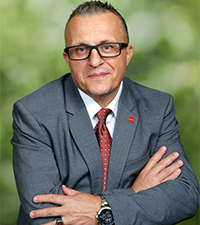
Gokhan Hacisalihoglu, Ph.D.
Professor and Extension Specialist, Aquaculture
Florida A&M University
Tallahassee, FL
Dr. Gokhan Hacisalihoglu, Ph.D. (Cornell University) is a Professor of Biological Sciences at Florida A&M University, where he carries out a broad range of research into crop improvement, ionomics, and seeds with an emphasis on genetics and phenotyping proteins and oils. He has led several NSF/ USDA-funded projects with proven success. He has published widely (54+ articles and 3 books “From Grow. to Bio: Plants”, “LevelUp CollegeSuccess”, “PlantBio ConceptsLM”). He has taught courses in General Biology, Plant Anatomy & Development and Scientist Life Skills. He is the winner of numerous awards, including the Teaching Innovation Award, twice Teacher of the Year Award, the Research Excellent Award, Fulbright to Japan, and national Excellence in HigherEd award. Find out more at https://www.linkedin.com/in/hacis/
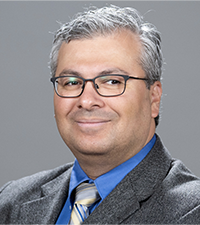
Taner Sen, Ph.D.
Research Biologist
USDA, Agricultural Research Service
Crop Improvement and Genetics Research Unit
Albany, CA
Dr. Taner Sen is a USDA-ARS scientist in the Crop Improvement and Genetics Research Unit in Albany, CA, with expertise in data management, computational biology, and artificial intelligence. Dr. Sen is also an Adjunct Professor in the Department of Bioengineering at the University of California, Berkeley. Dr. Sen leads the GrainGenes database, a USDA-ARS flagship database for wheat, barley, rye, and oat, https://wheat.pw.usda.gov.
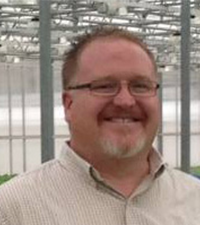
Dennis McIntosh, Ph.D.
Professor and Extension Specialist, Aquaculture
Department of Agriculture and Natural Resources
Delaware State University
Dover, DE
Dennis McIntosh joined the faculty of Delaware State University (DSU) in January of 2004, where he has a split research/extension appointment in the DSU Department of Agriculture and Natural Resources (AGNR). In July 2017 he was promoted to rank of Professor. His professional qualifications include a bachelor’s degree in Marine Resource Management from the Richard Stockton College of New Jersey in 1994, a Master’s degree in Mariculture from Texas A&M University - Corpus Christi in 1999, and a Ph.D. in Environmental Science from the University of Arizona in 2002. During his tenure at DSU, he developed an aquaculture program that combines applied research and extension activities. The program’s mission is to foster the creation of a local aquaculture industry by identifying suitable species for use in Delaware and the mid-Atlantic region, and low input methods to raise them profitably, so that as the industry grows, it will be both economically and environmentally sustainable. His research interests vary widely ranging from general aquaculture, working with both freshwater and marine species, in a variety of environments, from ponds to recirculating systems, to aquaculture disinfection technology. Over the last five years, Dennis has begun working more and more with shellfish in both research and extension capacities in an effort to provide support to the burgeoning shellfish aquaculture industry in DE. Since 2018 he has been working formally with DE Sea Grant’s Marine Advisory Service supporting marine aquaculture in the state.
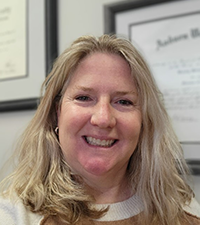
Wendy Sealey, Ph.D.
Research Physiologist
USDA, Agricultural Research Service
Bozeman Fish Technology Center
Small Grains and Potato Germplasm Research Unit
Bozeman, MT
Wendy has been a nutritionist with the USDA, Agricultural Research Service (ARS) since 2021 and held a similar position with the US Fish and Wildlife Service, also in Bozeman, Montana for 11 years prior. Her aquaculture career started in Auburn, Alabama where, while pursuing her degrees, she worked at the co-located ARS Fish health lab developing vaccines for channel catfish, graduating in 1994 (B.S.) and 1996 (M.S.). After leaving Auburn, she completed aquaculture research fellowships in Stoneville, Mississippi and Kagoshima, Japan before pursuing her Ph.D. in Nutrition at Texas A&M (2000). Wendy’s first job post-Ph.D. was for the North Central Regional Aquaculture Center where she provided extension support to the 12-state region. Wendy subsequently returned to research as a Post-Doc at the University of Arkansas Medical Science. Prior to her 15 years of federal service, Wendy was Adjunct Professor at the University of Idaho, Hagerman Fish Culture Experiment Station (2003-2009) where she conducted research in rainbow trout, catfish, tilapia, sturgeon, and tropical fish. To date, she has 24-years post-Ph.D. experience leading projects across the US and internationally, serving as academic faculty, federal researcher, outreach professional, and non-profit and industry consultant, to formulate sustainable nutrition and fish health strategies for aquaculture.
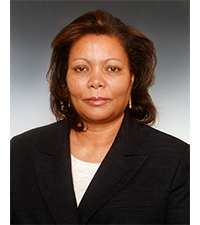
Mulumebet “Millie” Worku, Ph.D.
Professor, Animal Science
Director, Office of Undergraduate Research
North Carolina A&T State University
Greensboro, NC
Mulumebet “Millie” Worku is a professor of animal sciences and director of the office of undergraduate research. She is the advisor for the interdisciplinary undergraduate certificate in biotechnology and served as Graduate Coordinator for the Integrated Animal Health Systems Masters.
She is a recipient of the 2023 College of agricultures research excellence award The 2021 Innovations I-Corps Fellow Award from the Center of Excellence in Entrepreneurship and Innovation at NC A&T University. She was also named 2007 Teacher of the Year in the School of Agriculture and Environmental Science, the University Senior Researcher of the Year in 2011 and is also a recipient of a USDA ARS Merit Award. She has had national and international experience in research and education. Dr. Worku came to North Carolina A&T in 1999 as a visiting professor and instructor in microbiology. She previously served as a researcher with the U.S. Department of Agriculture and the Food and Drug Administration. She was an International Atomic Energy Agency research fellow at the University of Glasgow in Scotland.
Dr. Worku holds a Ph.D. and master’s degree, both in animal sciences, from the University of Maryland, and a Bachelor of Science degree from the Addis Ababa University Alemaya College in Ethiopia, also in animal sciences. Dr. Worku’s research program focuses on the molecular basis for important biological traits, emphasizing host response to pathogens causing inflammation in ruminants. This effort contributes to global food security and the provision of a diverse, well-prepared workforce. Her current research “Galectin characterization for genome to phenome integration” is funded through the USDA.
She is engaged in funded training efforts including preparation of STEM women and multicultural scholars and online curriculum development. Dr. Worku has published journal papers, review articles, and book chapters identifying genetic markers related to inflammation in animal health. She has served on many advisory boards, federal and international research grant panels, and scientific organizing committees of international conferences.
She teaches courses including Agricultural Genetics (ANSC 214) Techniques in Biotechnology (ANSC 665), Global livestock systems (ANSC 713) Bioinformatics and Genome Analysis’s (ANSC 771) and has co-taught AGRI 800 Sustainable and local food systems. She leads an active research laboratory, including undergraduate and graduate students and postdocs, research associates and mentors high school research apprenticeships students.
She oversees the Bioinformatics learning facility and is director of the laboratory for Animal Genomic Diversity and biotechnology. She participates in STEM outreach to schools and stakeholders.
Benjamin Rosen, Ph.D.
Research Biologist
USDA, Agricultural Research Service
Animal Genomics and Improvement Laboratory
Beltsville Agricultural Research Center
Beltsville, MD
Ben Rosen is a research scientist at the USDA ARS Animal Genomics and Improvement Laboratory in Beltsville, Maryland. He earned his PhD in plant biology from the University of California, Davis and joined ARS in 2015. Dr. Rosen's research utilizes the latest genomic technologies to generate improved genome assemblies and pangenomes for livestock species. His lab catalogs genetic diversity from SNPs to structural variants using data from both long and short read sequencing platforms and has begun comparative genomic studies across ruminant species. His research aims to enhance livestock breeding programs, improve animal health, and increase agricultural productivity.
